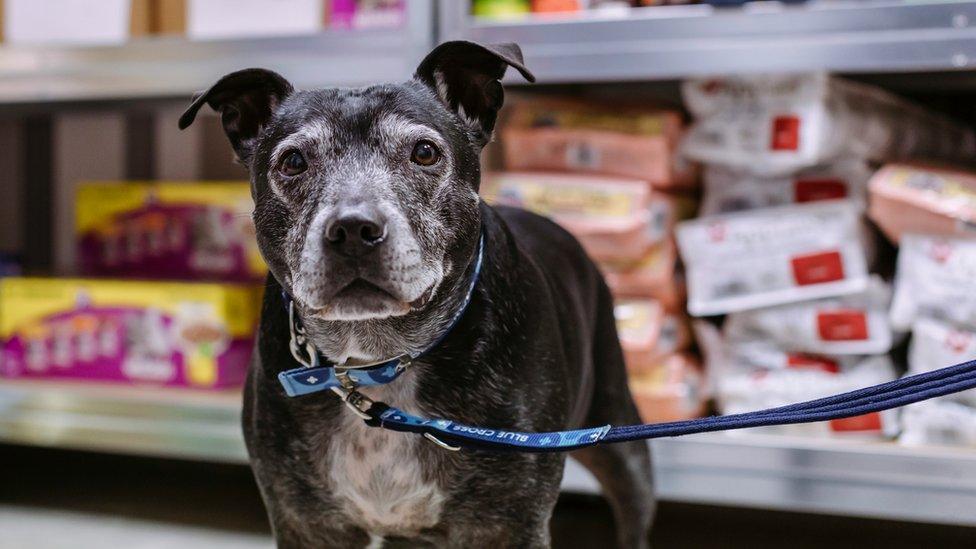Cost of living: The Leeds food bank making every user feel valued
- Published
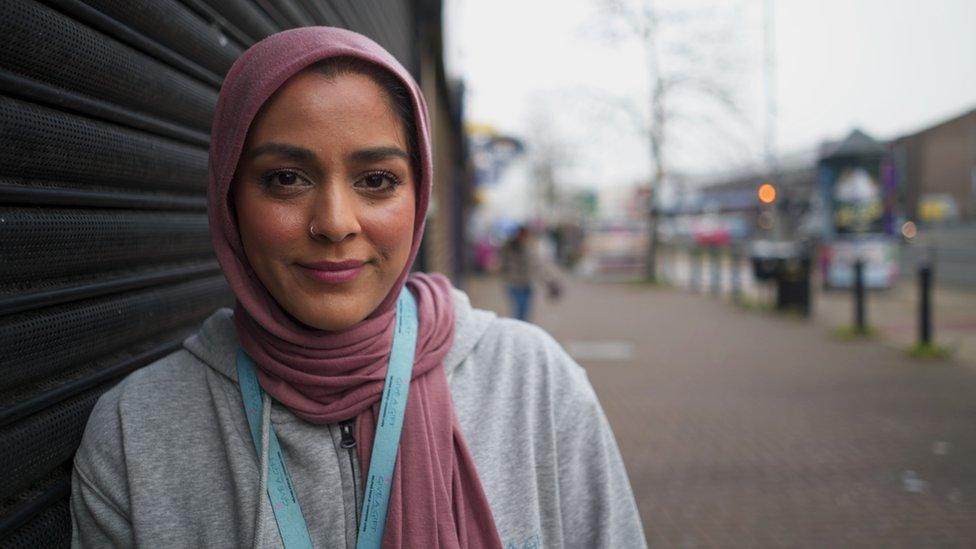
Coordinator Hana Agha says she wants all communities to feel valued
While food banks help thousands of those struggling to make ends meet, the goods given are not always suitable for everyone due to religious or cultural reasons. BBC News visited one centre which is committed to making sure every bag is right for the recipient.
A queue snakes outside the doors of the Cultural Food Hub, as bags full of ingredients like rice, lentils and kidney beans are handed out.
Hana Agha manages this centre in Leeds, where she says the number of low-income families using her service has recently "skyrocketed".
"This time last year we served about 70 people a week. Now we're serving 170 - and it's still going up," she explains.
Hana's team saw "culturally inappropriate" goods being distributed by food banks during the Covid pandemic.
This included items some religions can't accept, such as pork being given to Muslim and Jewish people.
"We've got massive diverse communities - African, Caribbean, Middle Eastern, South Asian and Eastern European. You want to make them feel valued," she says.
So, this project by Give A Gift and Leeds City Council focuses on serving suitable food for those people.
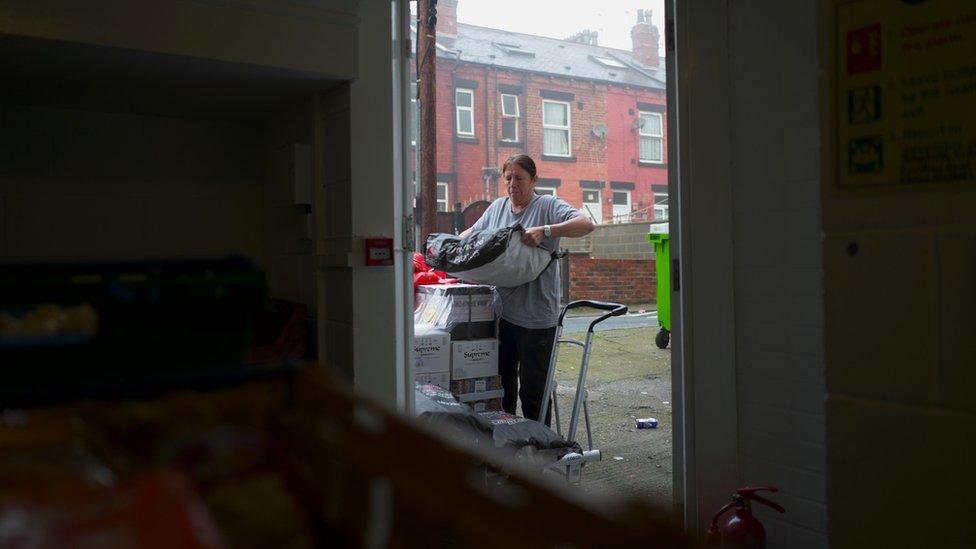
Volunteer Janice Hargreaves "doesn't feel the cold" as she unloads a delivery of potatoes
Hana says she has been shocked by some of the people needing the centre's help.
"A local school's staff member was referred to us. She was crying and said never in her life had she needed to use a food bank."
The food hub coordinator says it's important to keep her clients healthy, as well as fed, with a variety of dishes this winter.
"It's really rewarding to be doing this, you see the impact. Food is fuel for your body and you need a balanced diet to keep your immune system up."
'We have to keep positive'
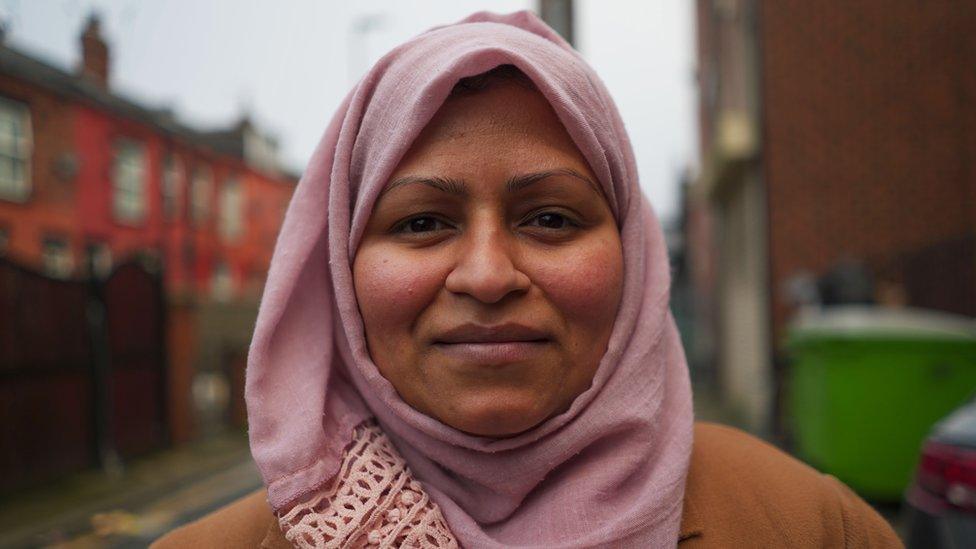
Shuheda's children are aged two, five and 15
Shuheda Begum has been coming here for two weeks.
"I don't get anything for myself, I just get things for the children," she says.
The 37-year-old single mother of three can't afford essentials after her rent and bills went up.
"It's hard to survive, I'm so stressed," she tells me.
"My house is freezing and my small child is wheezing. He always gets a cold and a cough so I have to keep him warm.
"But if I pay the bills, I have nothing to buy food or clothes for the children. How are we going to manage?"
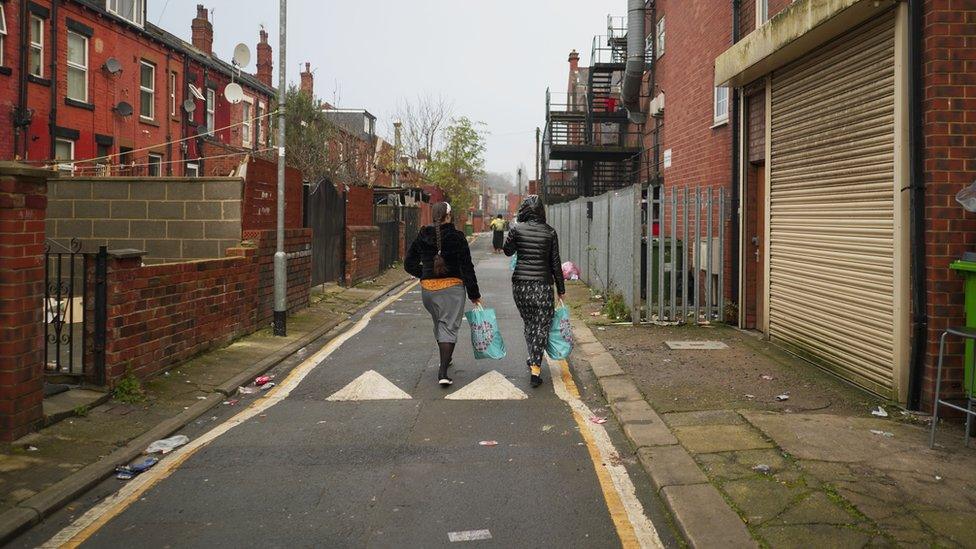
People head off home with their blue bags of food
Shuheda gets vegetables, bread and tinned goods from the food hub. She often receives food vouchers for shops too.
"We make Asian food like chapati and rice. It's helping a lot and matters to us because we're used to eating this food since we were born, from our parents' heritage."
She also gets ingredients from a children's centre, otherwise it's "not enough" to keep the family going.
She hopes things get better.
"We have to keep positive and pray. I want my kids to get a good education, good job and live a good life."
'It's not just people on benefits'
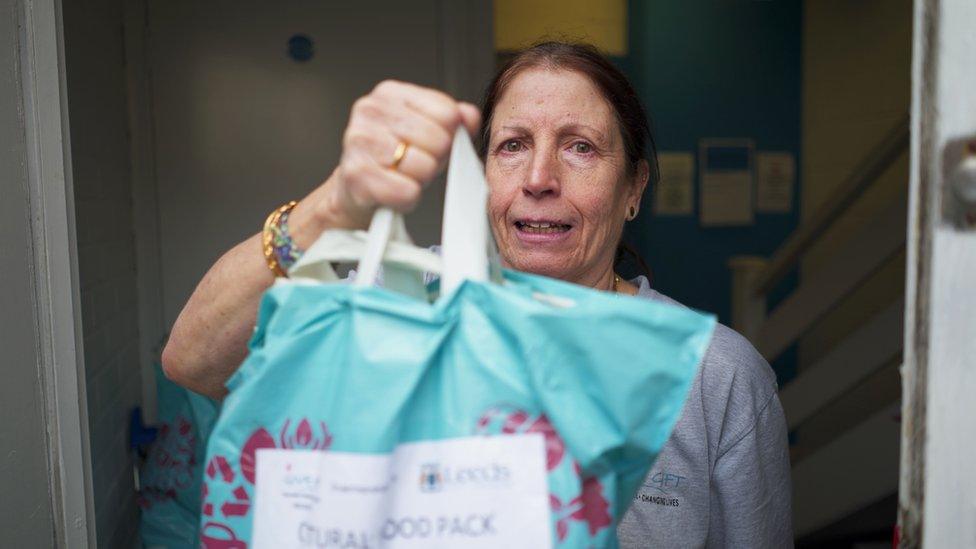
Janice spends hours preparing food bags every Monday
Retired volunteer Janice Hargreaves packs about 40 bags of food every Monday.
"There are tomatoes, chickpea tins, lentils, kidney beans, rice, chapati flour, biscuits, and extra little cakes," she lists.
"We've got kala chana (black chickpeas), which I'd never heard of, but families love it," she adds.
Janice bundles different ingredients together for Middle Eastern, South East Asian and African cultures.
"It's a staple diet of what they would buy that would feed them for the week. For example, you can make a big pan of daal that lasts quite a few days and put spices in it," she says.
She opens the doors at midday and begins the process of handing out the blue bags of goods to people in the queue.
Some are registered on her list, while others have simply shown up in need of emergency support.
"It's not just people on benefits coming here. Pensioners, asylum seekers and refugees who aren't getting any money need just as much help," she explains.
It can be difficult to make conversation with so many languages, but Janice tries to understand a little bit of Urdu.
"I've never known people queuing for food like this in my lifetime," she says.
"I like to think if I needed it, somebody out there would help me."

BBC Action Line
If you've been affected by these issues, visit BBC Action Line for advice and support.

Follow BBC Yorkshire on Facebook, external, Twitter, external and Instagram, external. Send your story ideas to yorkslincs.news@bbc.co.uk, external.
Related topics
- Published4 November 2022
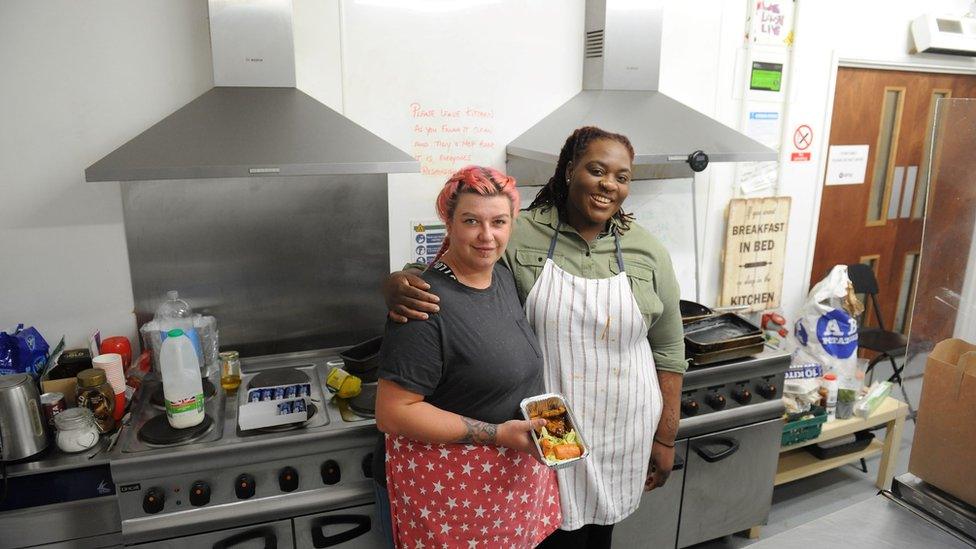
- Published1 December 2022
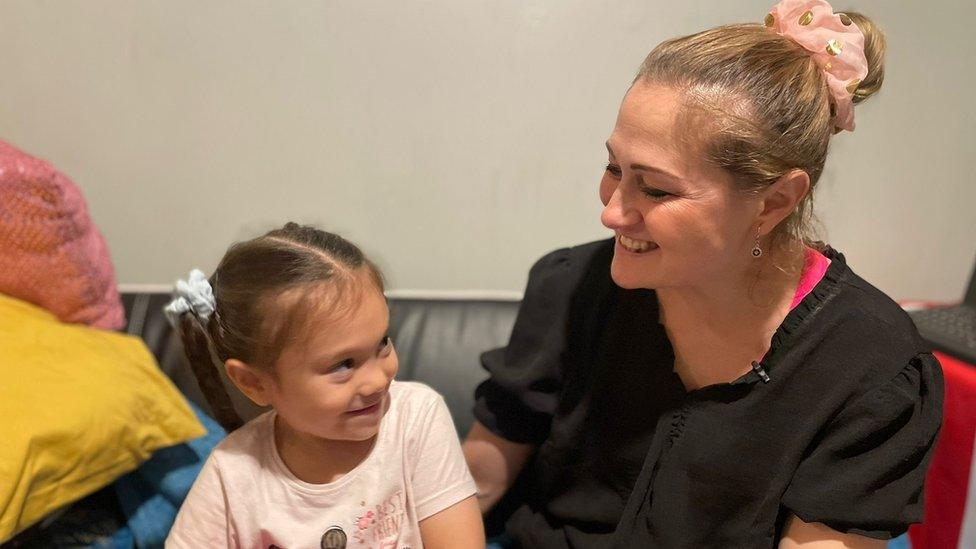
- Published28 July 2022
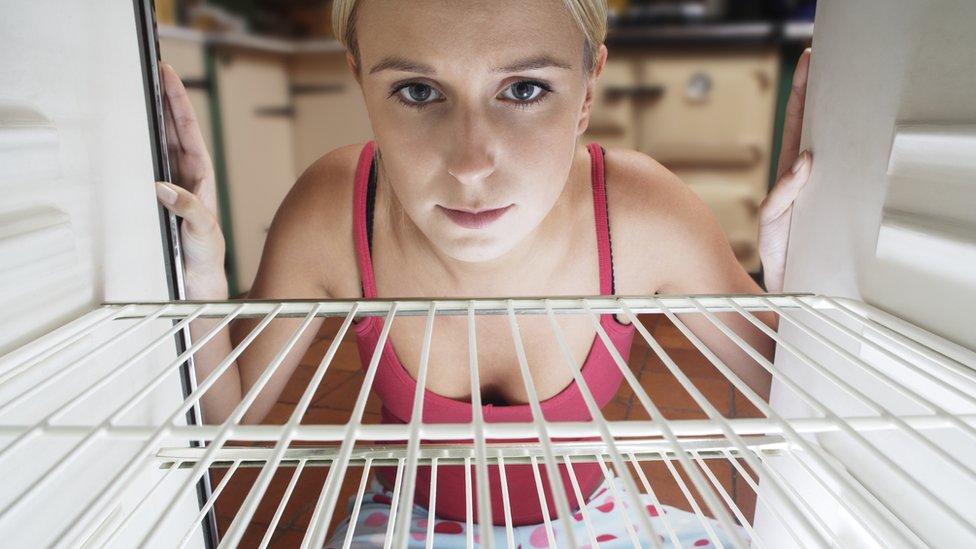
- Published22 July 2022
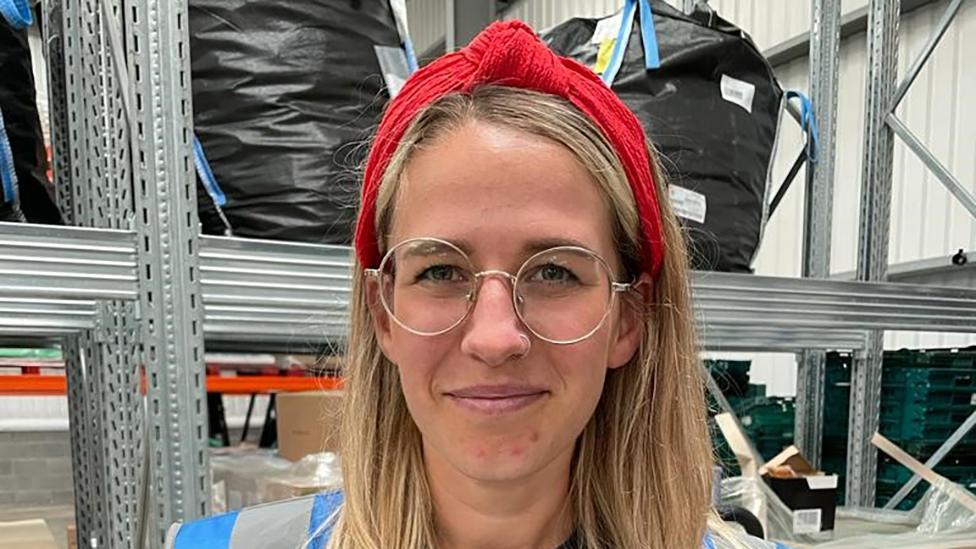
- Published8 June 2022
